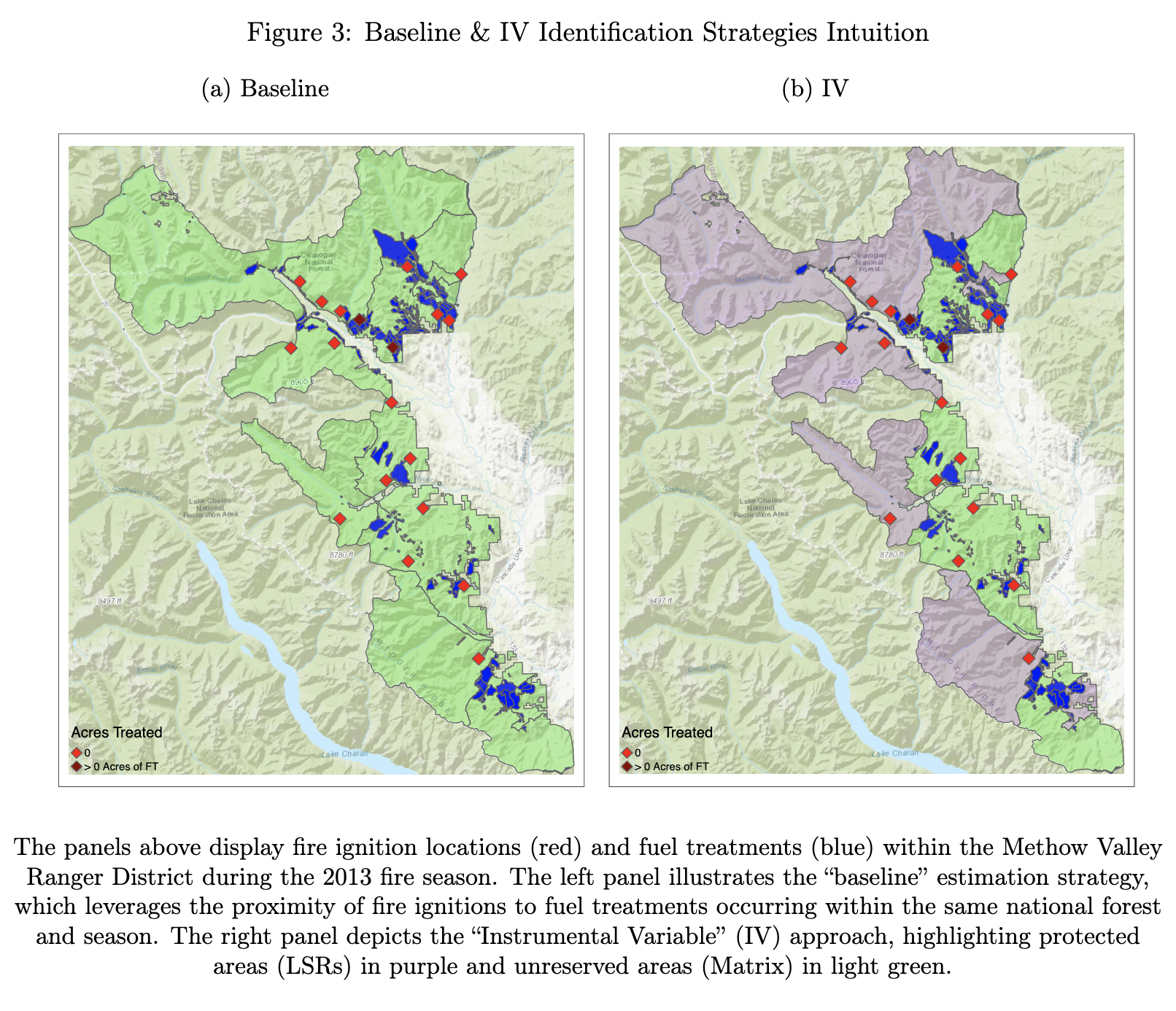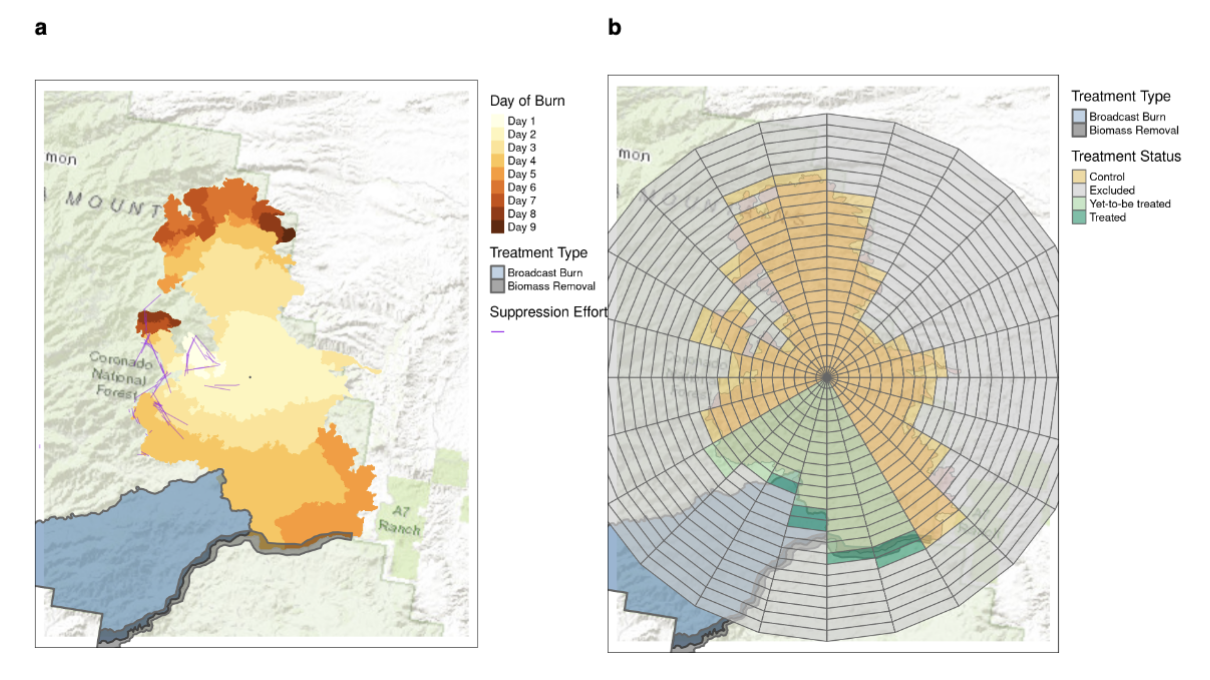Research
Abstract:
A century of wildfire suppression policies has led to the build-up of combustible fuel loads in forests, increasing the size, severity, and costs of wildfires. This study explores whether fuel-reduction treatments reduce wildfire suppression costs. Focusing on wildfires igniting on U.S. Forest Service lands in the Pacific Northwest, we leverage exogenous variation in protections for the Northern Spotted Owl that unintentionally restrict fuel treatments. Conservative estimates indicate that four to seven dollars are saved in suppression costs for every dollar spent on fuel treatments. Our results highlight the potential for reforming environmental protections to achieve economic savings and conservation benefits.

Abstract:
Wildfires have emerged as one of the most pressing environmental challenges of the 21st century, with far-reaching economic and ecological consequences. The buildup of combustible forest fuels is a key contributor to escalating wildfire risk, as decades of suppression policies have allowed fuels to accumulate well beyond historical levels. Although fuel-reduction treatments are central to wildfire risk management, they remain underutilized, in part due to a limited understanding of their economic benefits. Here, we provide large-scale empirical evidence on the cost-effectiveness of fuel treatments in mitigating wildfire damages. We integrate high-resolution data on wildfires, fuel treatments implemented by the U.S. Forest Service, suppression effort, and economic damages across the Western United States from 2017 to 2023. Using a quasi-experimental design, we find that fuel treatments significantly reduced wildfire spread and severity, avoiding an estimated $2.7 billion in damages by limiting structure loss, reducing CO2 emissions, and lowering PM2.5 exposure. We estimate each dollar invested in fuel treatments yields $3.42 in expected benefits. Larger treatments and prescribed burns are especially effective, suggesting that refinements to fuel treatment design could further enhance their impact. Our findings demonstrate the value of investing in fuel treatments and offer actionable insights for optimizing their implementation as wildfire risk intensifies.

Abstract:
Overextraction and excess capacity are longstanding challenges in natural resource industries. Capacity reduction programs are an increasingly common policy response designed to reduce capacity, reallocate access rights, and improve environmental and economic outcomes. Yet little is known about how such programs distribute benefits and costs among participants who remain in the industry. This paper estimates the benefits accruing from the U.S. Pacific Coast Groundfish Buyback Program, which retired over one-third of its vessel capacity through a voluntary $46 million reverse auction. Exploiting spatial variation in capacity reductions across ports within a difference-indifferences design, we find that active vessels operating in ports with larger relative reductions realized substantial revenue gains, while those elsewhere saw small or negligible gains. Conservative estimates suggest the program generated approximately $24.7 million in additional revenues net of variable costs and program fees over the first seven years, yielding approximately $5.25 in benefits per dollar paid in fees. However, returns varied widely depending on the degree of local capacity reduction. These findings demonstrate that while capacity reduction programs can yield significant economic gains, their uneven impacts raise important questions about program design and the balance between efficiency and equity.
